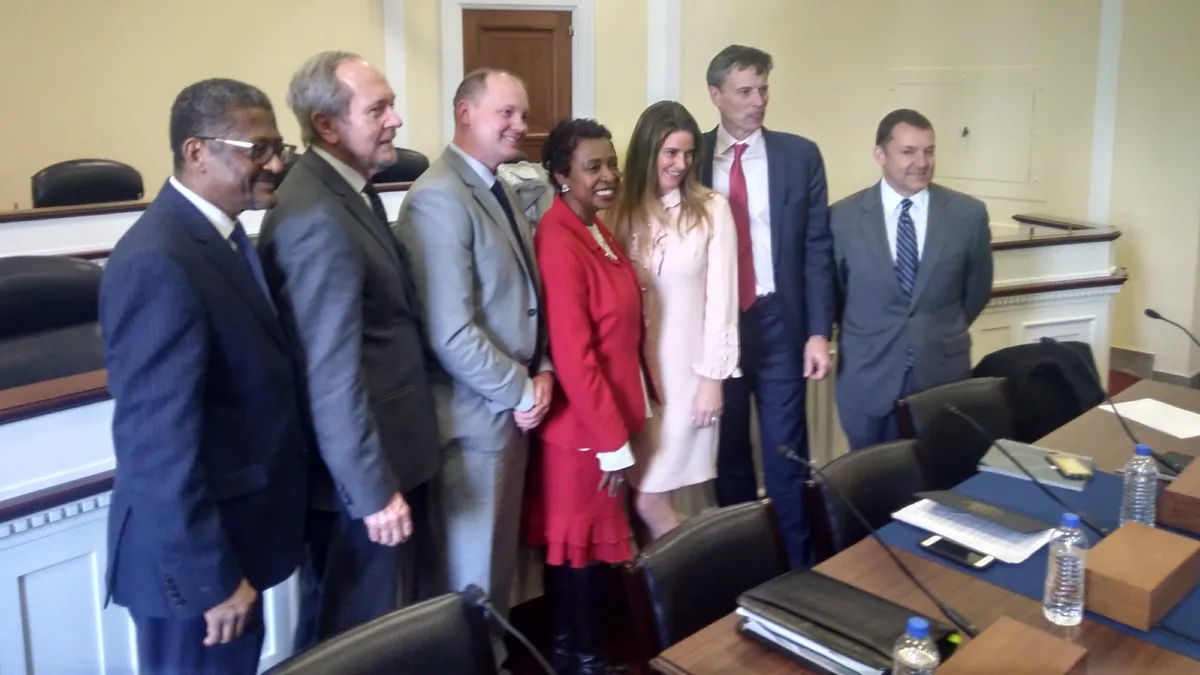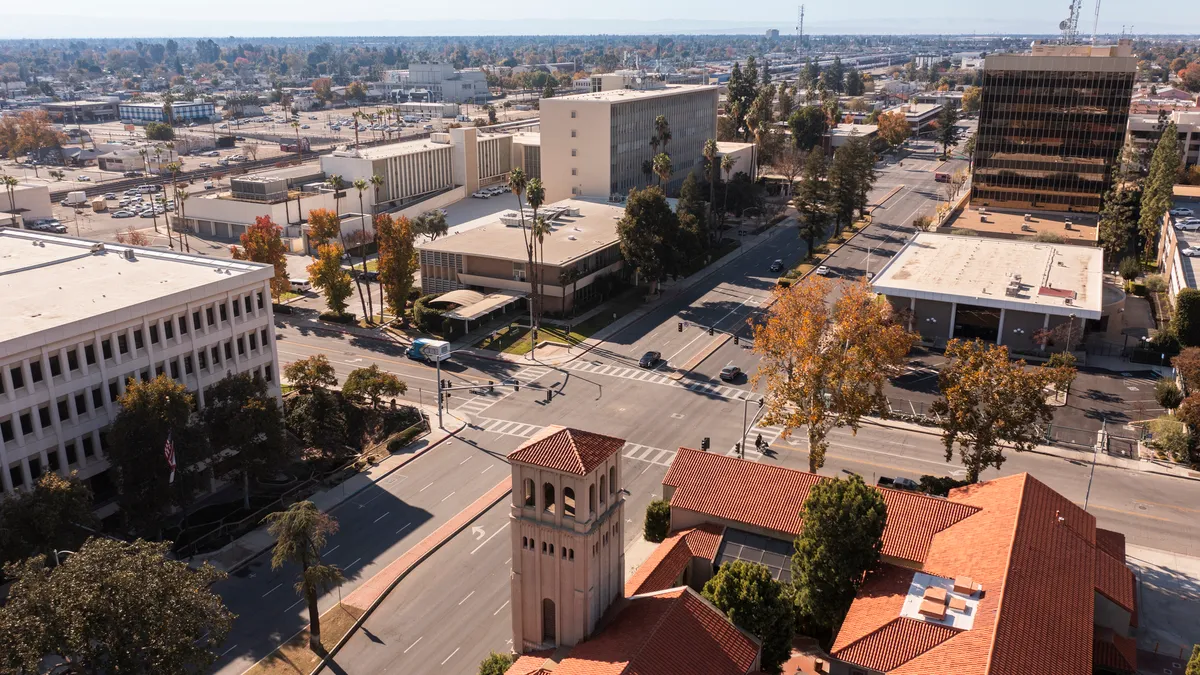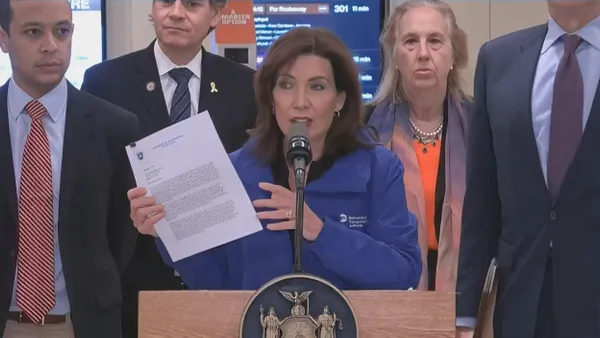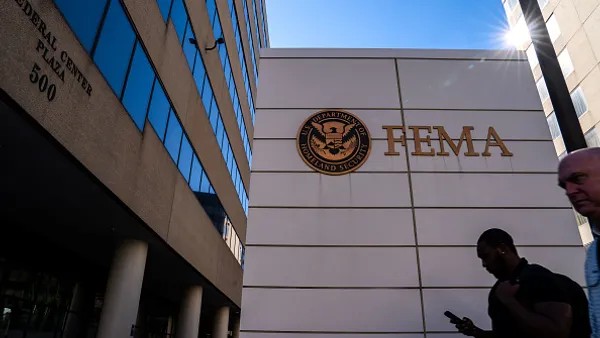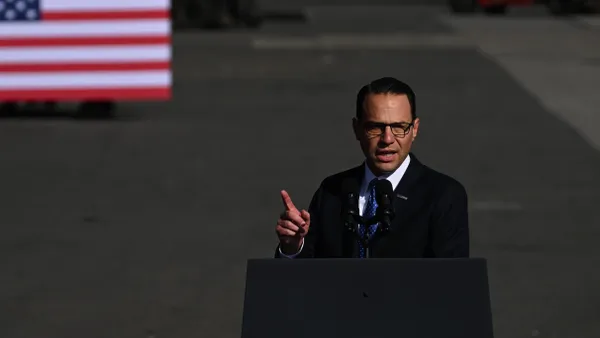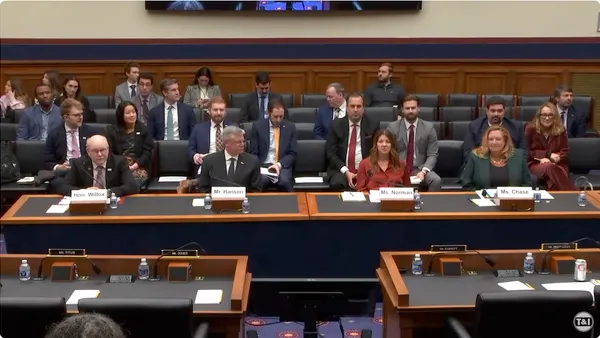Dive Brief:
- The Congressional Smart Cities Caucus officially launched Tuesday with an event on Capitol Hill hosted by caucus co-chair Rep. Yvette Clarke, D-NY. Her fellow co-chair, Rep. Darrell Issa, R-CA, was absent as President Trump was visiting his district.
- In opening remarks at the event, Clarke said Reps. Tony Cardenas, D-CA; Jerry McNerney, D-CA; Nanette Barragan, D-CA; Hank Johnson, D-GA; and Jared Polis, D-CO, have also joined the caucus. Clarke’s remarks were then followed by an introductory roundtable that took a broad look at work being done in smart cities.
- Lawmakers will host a series of roundtables on Capitol Hill this spring on issues facing smart cities: connectivity, mobility, workforce and sustainability. Those roundtables will include discussions with business leaders and elected officials, with a view to determining policy recommendations and possible legislation for Congress to consider.
Dive Insight:
In an interview after the event, Clarke talked up the new caucus to get more lawmakers engaged on smart cities and thinking about how technology can improve their constituents’ lives. "We’re having more and more members who are curious about technology, what it means, and it’s impacting us on a regular basis, on a daily basis," she said.
Legislation has already been filed in Congress to support the work of smart cities, including a bill that would expand the Smart Cities Council’s Readiness Challenge Grants scheme. During the discussion, Steve Crout, vice president of government affairs at technology company Qualcomm, said that the caucus could help advance those bills or similar legislation. "Those are two initiatives that we can all work together on, and this Smart Cities Caucus is the perfect vehicle for that," he said. Separately, Clarke said she looks forward to a “full-throated conversation” on the bills within the caucus.
At the roundtables, which begin on March 20 with a discussion about connectivity, Clarke said she hopes they will open lawmakers’ eyes to the need to invest in smart cities technology now, especially with conversations ongoing about how to improve the country’s infrastructure. Trump released his blueprint last month, while Senate Democrats rolled out their own competing $1 trillion plan. “If we’re rebuilding infrastructure, there’s some key components that should be baked into it from now so that we’re not regressive in thinking, ‘Oh, wow’ after the fact, we needed to embed sensors into the roads for AVs,” Clarke said. “We need to be visionary.”



